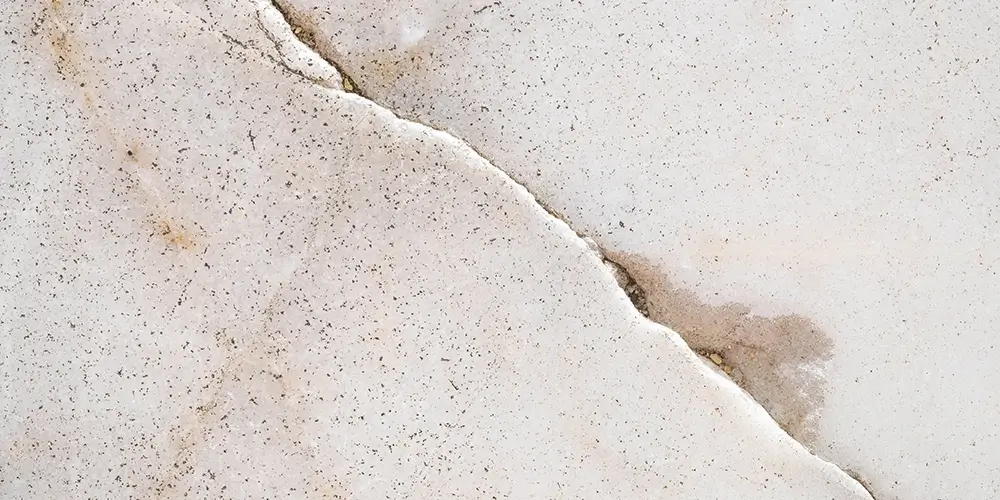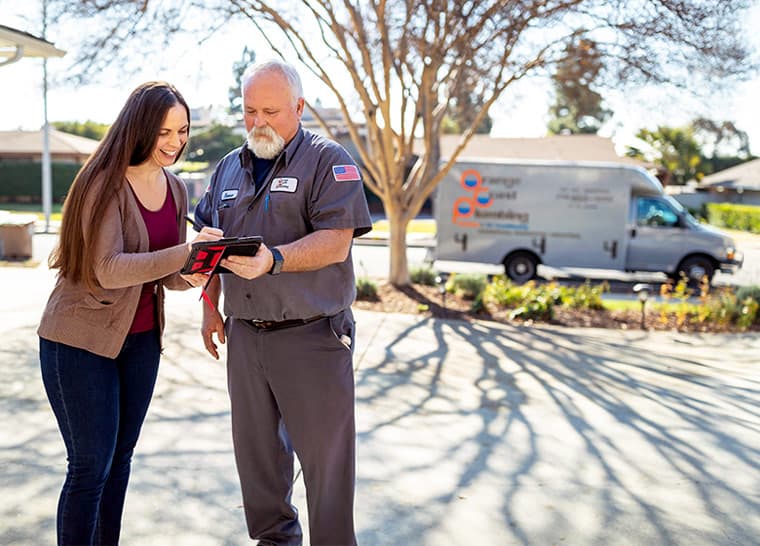Plumbing professionals use the term slab leak to refer to any pipe leak that occurs in one of two locations: beneath a concrete foundation or slab, or directly within the slab/foundation itself. These types of leaks rank high on the list of most feared plumbing malfunctions.
That’s true because they can ultimately lead to severe problems such as an unstable building structure or hazardous indoor air. So, exactly how do slab leaks develop? Let’s take a look at some of the most common causes of slab leaks.
Poorly Installed or Low-Quality Pipe Materials
It takes a great deal of experience and care to properly install water lines within or beneath a concrete slab or foundation. If the installer fails to take all recommended precautions, the end result may be a form of pipe/line damage such as kinking or denting. In turn, the presence of any of these issues greatly boosts the risks for eventual slab leak formation.
The use of substandard pipe/line materials can also dramatically increase your chances of having to deal with a slab leak. Reputable plumbers will only use quality materials that meet the standards imposed by local building codes. However, even the most skilled plumber may inadvertently use materials with hidden or unsuspected defects.
For a number of reasons, prior to or during installation, a water pipe or line may also be directly exposed to construction-related chemicals that weaken it and make it more susceptible to leaking. Unfortunately, after the concrete is poured, no one can directly examine the condition of your installed water lines.
High Pressure Within a Water Line
All water lines have a maximum interior pressure level. If the generated pressure exceeds this level, the resulting outward force usually leads to a sharp increase in the odds for leak development. When it comes to pipes installed within or beneath a concrete slab or foundation, excessively high water pressure has several potential sources.
First, the problem may stem from poor or improper installation of the concrete slab/foundation during original building construction. Another likely source is localized shifting or some other form of movement in the soil beneath the concrete. In Southern California, the presence of regular seismic activity introduces an additional source of problems: earthquake-related shocks and tremors. A plumbing professional can perform tests to determine your building’s current water pressure, and also take steps to reduce high pressure to acceptable levels.
High Pressure on the Exterior of a Water Line
Like the interior of a water line, the exterior can only withstand so much pressure before it breaks, buckles or ruptures and springs a leak. The same forces that can lead to high pressure inside a line that runs through or beneath a slab/foundation can also lead to high pressure bearing down on the line exterior. Your buried water lines may also experience other pressure-related issues unique to your property.
More than any other cause, slab leaks produced by excessive exterior water line pressure tend to result in major leaks and severe flooding-related damage.
Interior & Exterior Pipe Corrosion
If your building has water lines made from some sort of metal, you may experience a slab leak caused by interior or exterior pipe corrosion. For a couple of reasons, this problem typically appears in hot water lines. First, the interior of a hot water line simply has a higher chance of corroding than the interior of a cold water line.
In addition, when the heat from a hot water line passes into the surrounding soil or concrete, it can trigger a chemical reaction that leads to exterior corrosion issues. Please be aware that the interior of a cold water line can also corrode enough to produce a leak. Also note that even a corrosion-resistant copper pipe can eventually wear away through a spontaneous chemical process called electrolysis.
Exterior Abrasion or Friction
When water passes through a pipe or line, it can produce temperature changes that lead to significant expansion or contraction of the line/pipe material. In turn, these fluctuations in pipe diameter can produce a rattling or shaking motion that causes the line or pipe to rub against the surrounding exterior material. If this chain of events occurs inside in a concrete slab or foundation, it will inevitably produce some degree of abrasion or friction.
Over time, this friction can lead to a smsssssssssssssssssssssssssssssssssssssssssssssssssssssssssssssssssssssssssssssssssssssssssssssssssssssssssssssssssssssssssssall leak, larger leak or even a total failure and rupture. Because greater temperature changes occur inside hot water lines, these lines have the highest chances of experiencing damaging abrasion/friction. However, even a cold water line can develop enough of a problem to begin leaking.
Poor Water Quality
All water sources register as acidic, neutral or alkaline on a system of measurement called the pH scale. The values on this scale range from 1 to 14. All water with a pH level below 7 is classified as acidic. Experts describe water with a pH level of 7 as neutral, while water with a pH rating of 8 or higher qualifies as alkaline.
So, what does any of this have to do with slab leak formation? Simply put, the quality of the water running through your building’s lines has a direct influence on the long-term health of those lines. Both excessively acidic water and excessively alkaline water can eventually damage a pipe and lead to the onset of a minor or major leak.
When this leaking occurs in or beneath a concrete slab or foundation, you have a slab leak on your hands. You can test the pH level of your water supply with a do-it-yourself or plumber-administered kit created specifically for this purpose.
You can also look for telltale signs such as a chlorine-like smell when you open up a water tap or a bluish-tinted ring in your bathtub. If you have a pH-related issue, there are treatments available to neutralize excessively acidic or alkaline water.
Please be aware that, no matter the cause of a slab leak in your home or business, you must receive help from a qualified plumbing professional as soon as possible. Otherwise, even a small leak can gradually or rapidly turn into a catastrophic problem. With the help of modern detection technology, the seasoned slab repair technicians at Orange Coast Plumbing can track down the source of even the most obscurely located leak.


